
Find Help
More Items From Ergsy search
-

What role do water companies play in sewage pollution?
Relevance: 100%
-
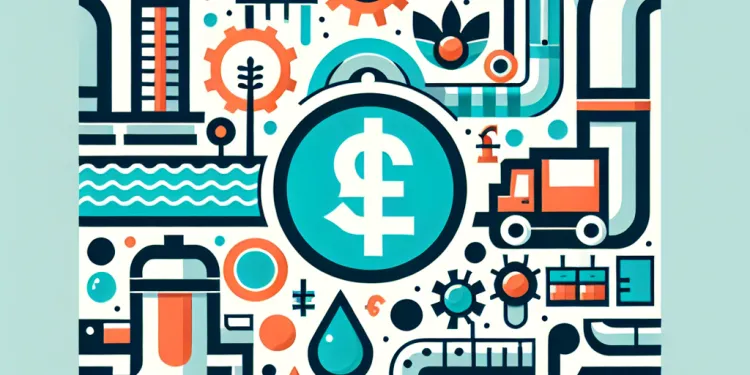
What agencies monitor and regulate sewage pollution in the UK?
Relevance: 80%
-
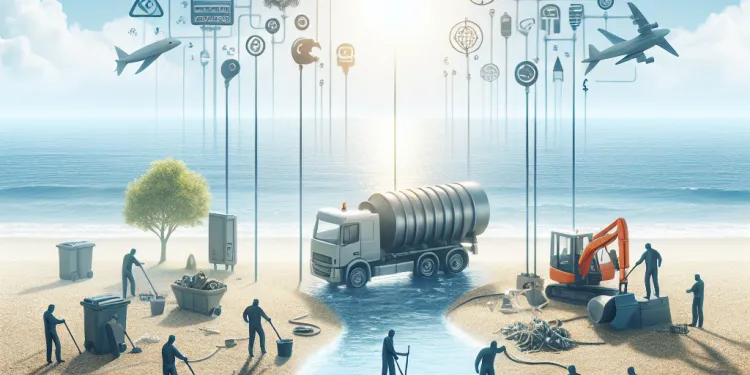
What is being done to address sewage pollution on UK beaches?
Relevance: 79%
-
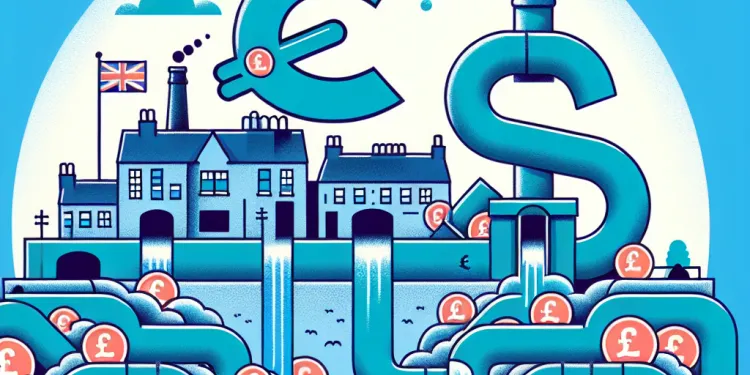
Which UK areas are most affected by sewage pollution?
Relevance: 77%
-
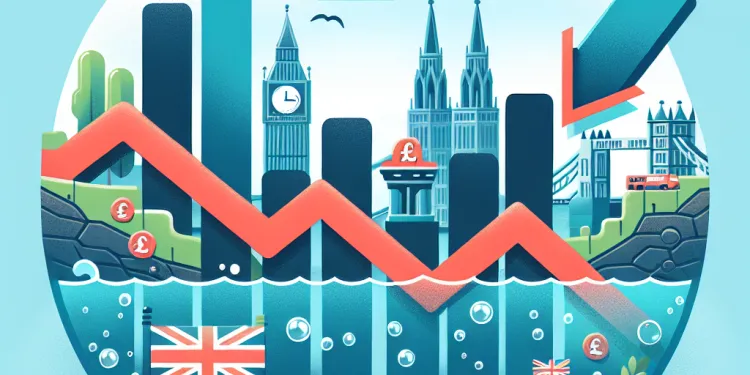
Has sewage pollution in the UK improved over recent years?
Relevance: 77%
-
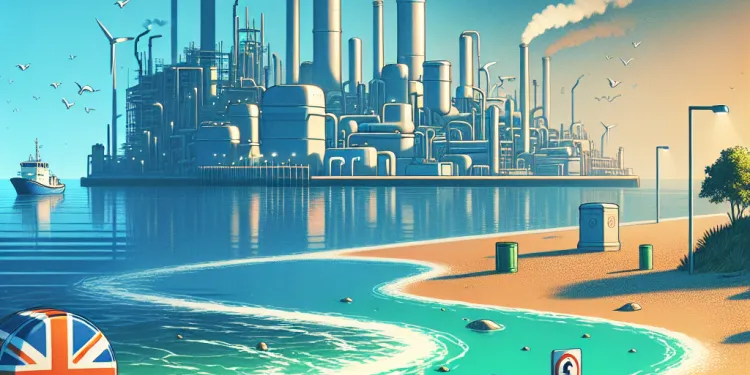
What causes sewage pollution on UK beaches?
Relevance: 76%
-
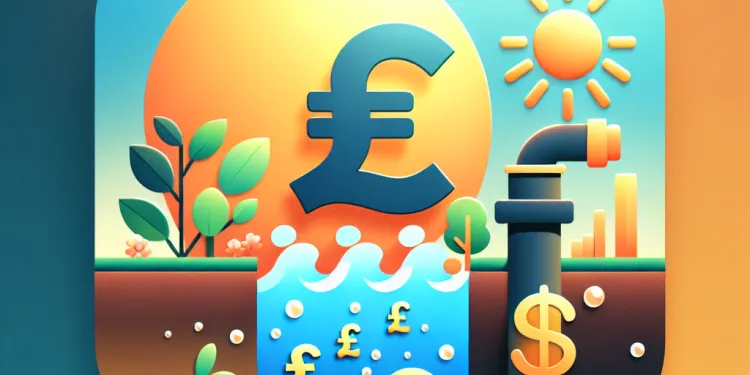
Is climate change affecting sewage pollution levels?
Relevance: 74%
-
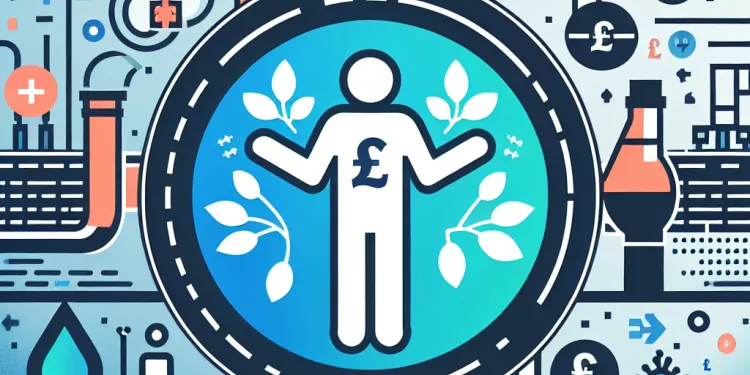
How does sewage pollution affect public health?
Relevance: 70%
-
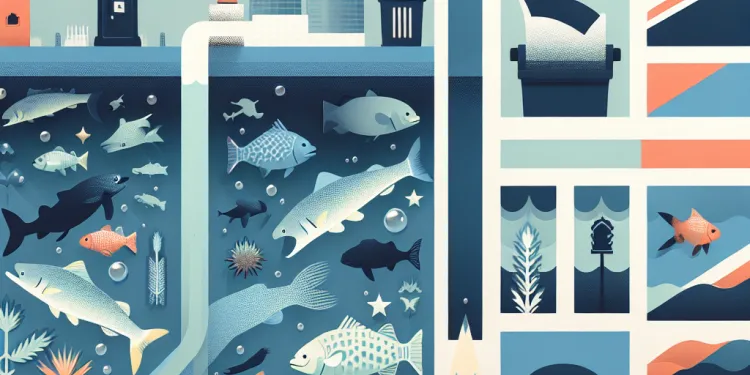
Can sewage pollution impact marine wildlife?
Relevance: 70%
-
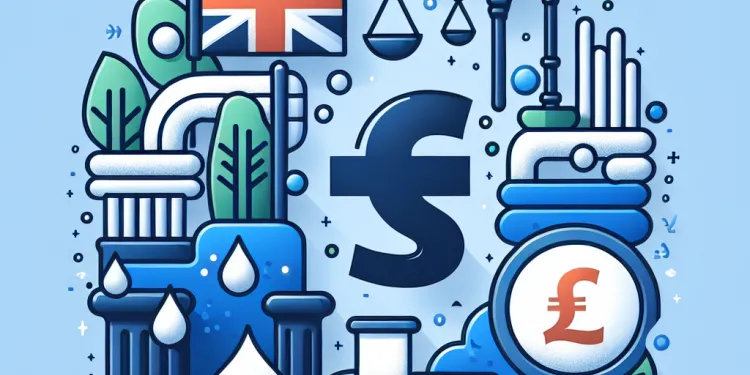
Are there legal guidelines for sewage discharge into UK waters?
Relevance: 69%
-
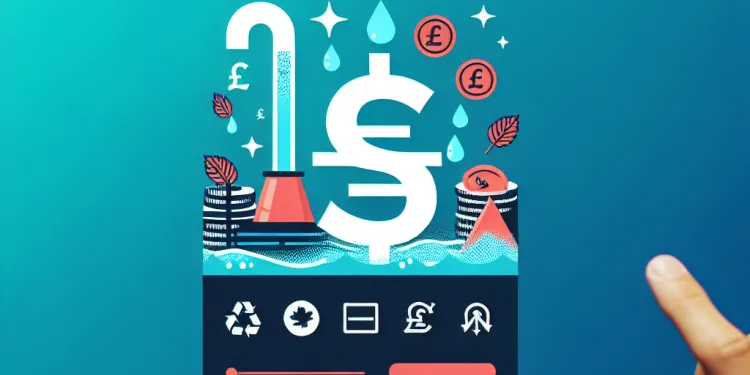
How can individuals help reduce sewage pollution?
Relevance: 69%
-
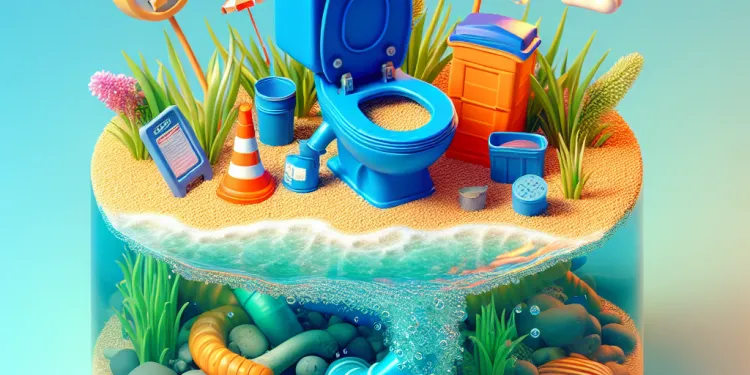
Is sewage a problem on UK beaches?
Relevance: 66%
-
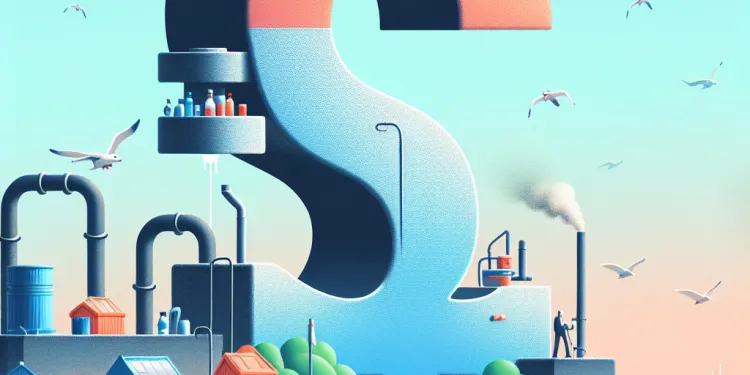
How can the public find out if a beach has sewage pollution?
Relevance: 66%
-
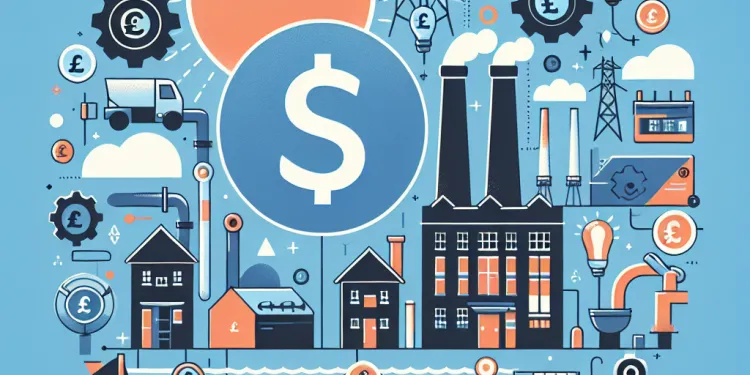
Are water companies responsible for maintaining water infrastructure in the UK?
Relevance: 56%
-
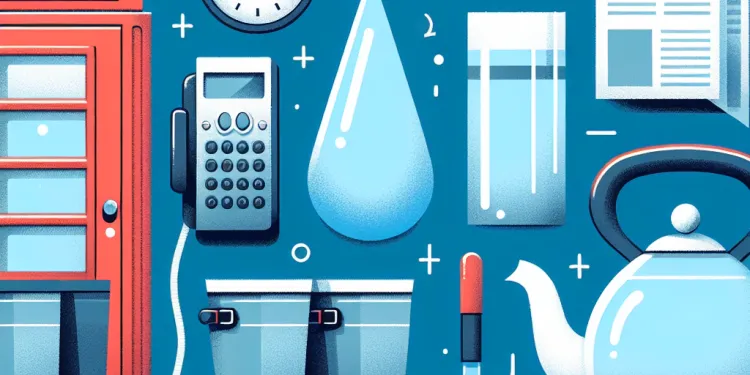
Which UK water companies are going to refund their customers?
Relevance: 51%
-

How many UK water companies are involved in the refund process?
Relevance: 48%
-
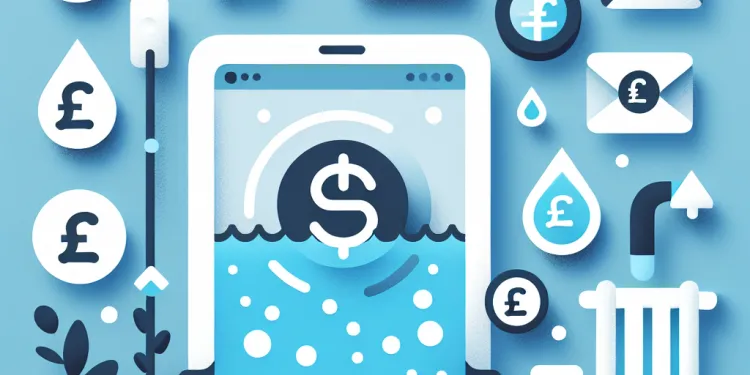
Are there penalties for water companies besides issuing refunds?
Relevance: 47%
-

When will the refunds be issued by the UK water companies?
Relevance: 46%
-

How do water companies fund infrastructure updates?
Relevance: 45%
-
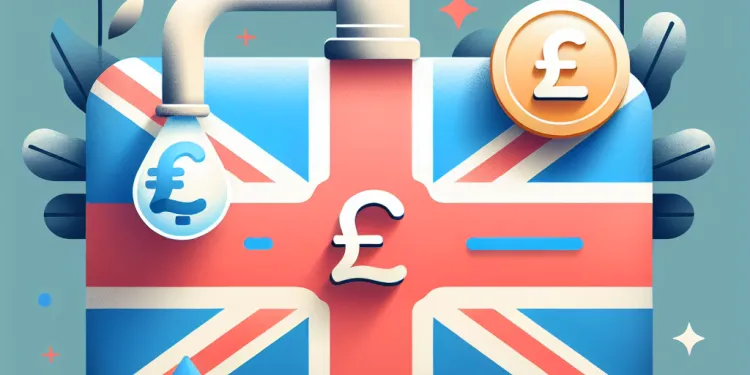
Who regulates water companies in the UK?
Relevance: 43%
-
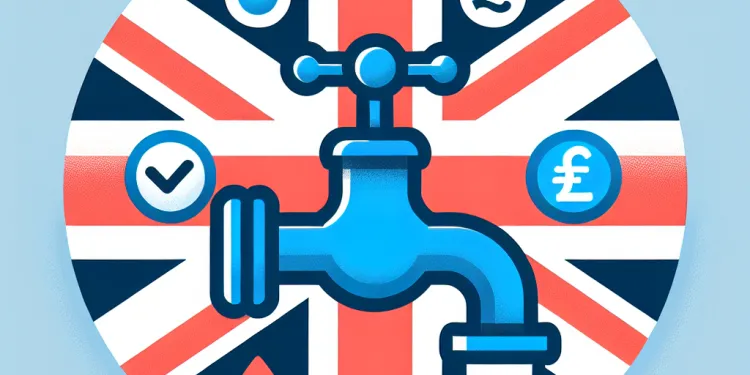
What criteria were used to determine the refunds for UK water companies?
Relevance: 43%
-
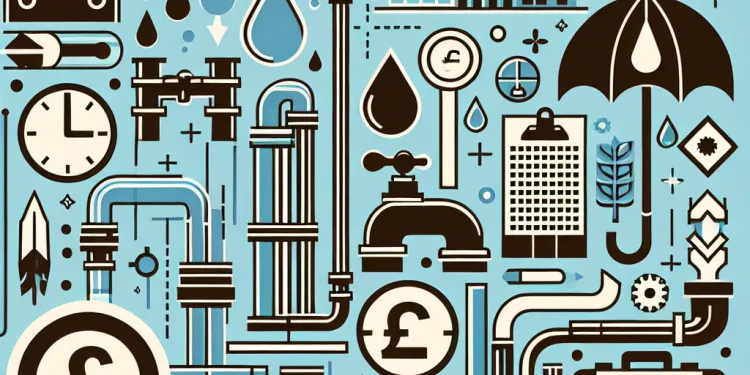
Do water companies have long-term infrastructure plans?
Relevance: 42%
-
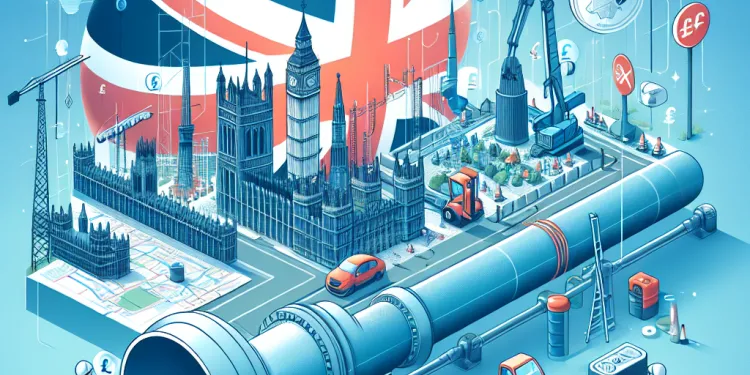
Do water companies have to update the infrastructure?
Relevance: 42%
-
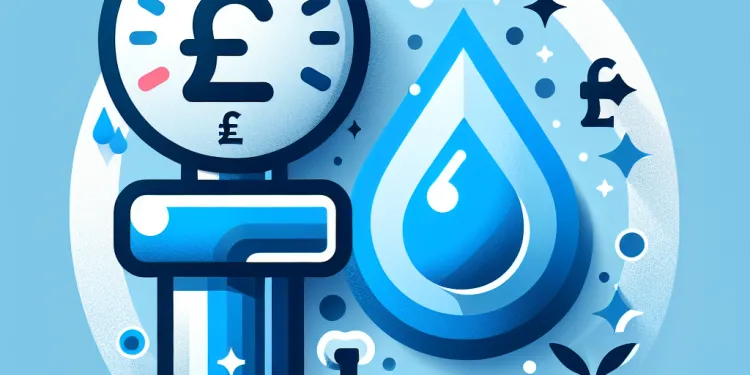
Which UK water companies are going to refund their customers for poor performance?
Relevance: 41%
-

How do water companies detect leaks?
Relevance: 41%
-

Who regulates the performance and compliance of UK water companies?
Relevance: 41%
-
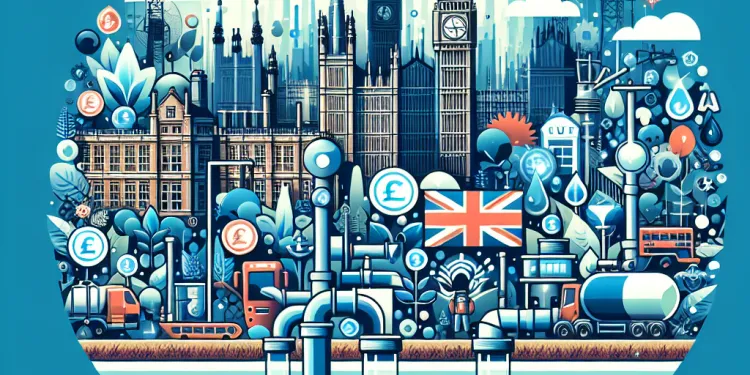
Are water companies responsible to maintain and update infrastructure in the UK?
Relevance: 41%
-
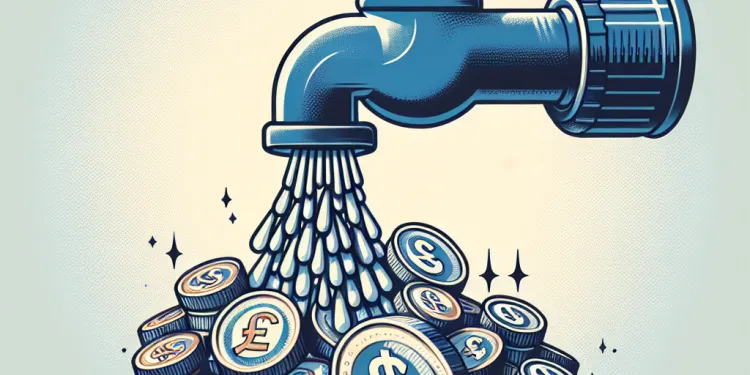
How much is being refunded in total by the UK water companies?
Relevance: 41%
-
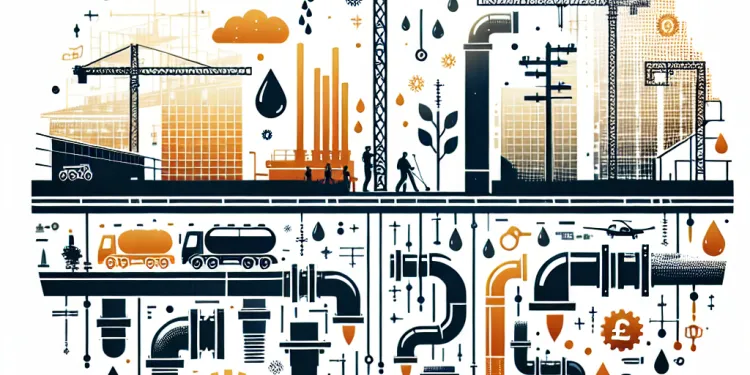
How are infrastructure priorities determined by water companies?
Relevance: 39%
-

Will all customers of these UK water companies receive refunds?
Relevance: 39%
-
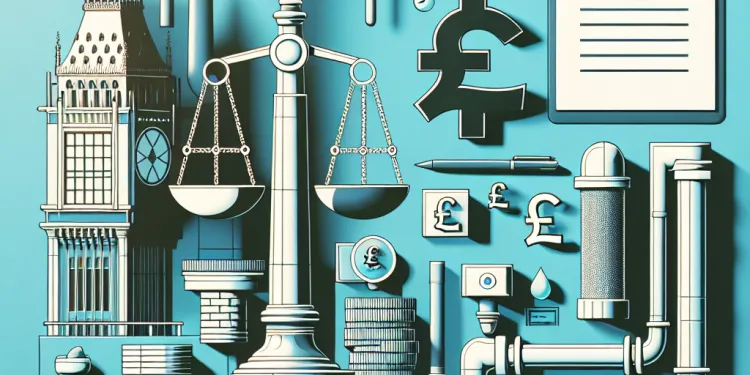
Which body is responsible for enforcing refunds by UK water companies?
Relevance: 39%
-

How transparent are water companies regarding infrastructure improvements?
Relevance: 39%
-
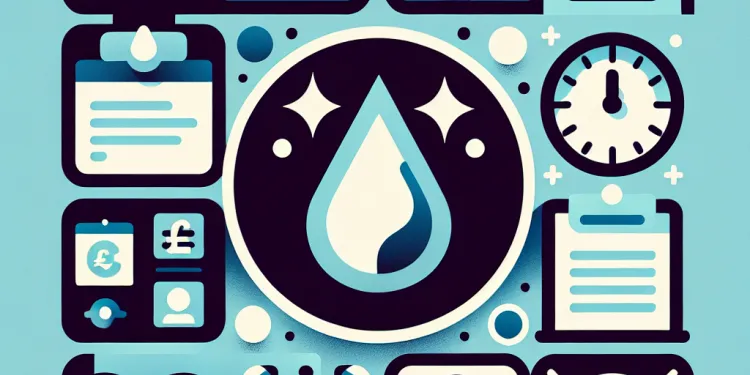
What can I do if the water company doesn’t respond to my claim?
Relevance: 39%
-
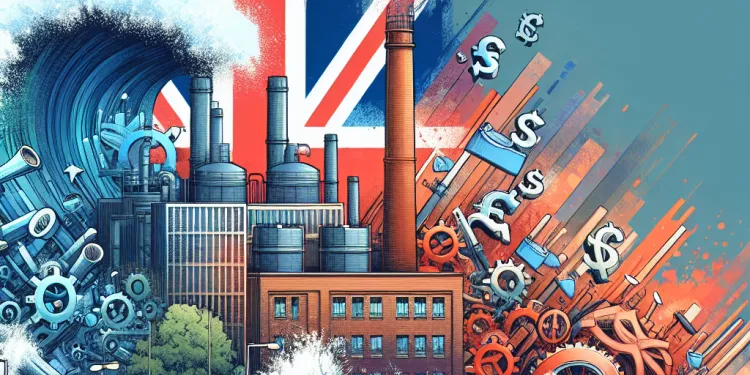
Can water companies enter my property to enforce a hosepipe ban?
Relevance: 38%
-

Can customers appeal or discuss the refund amount with their water company?
Relevance: 38%
-
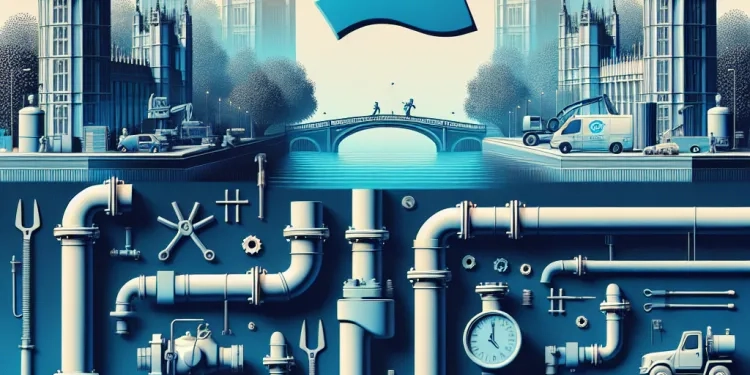
What challenges do water companies face in maintaining infrastructure?
Relevance: 38%
-

Do these refunds mean water companies have increased their rates fraudulently?
Relevance: 37%
-
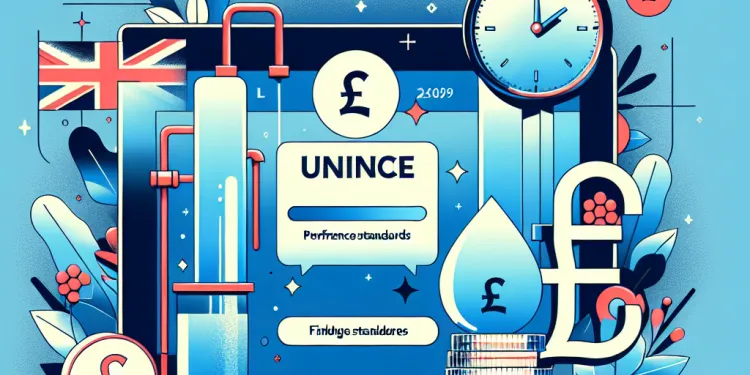
Where can customers find updates on their water company's performance standards?
Relevance: 37%
-
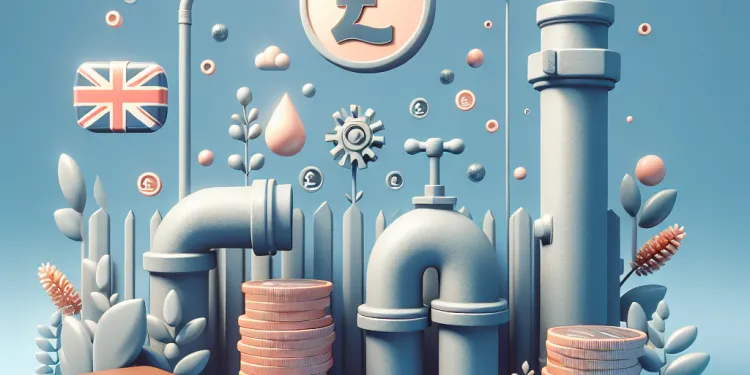
How can I claim money back from my water company?
Relevance: 37%
-
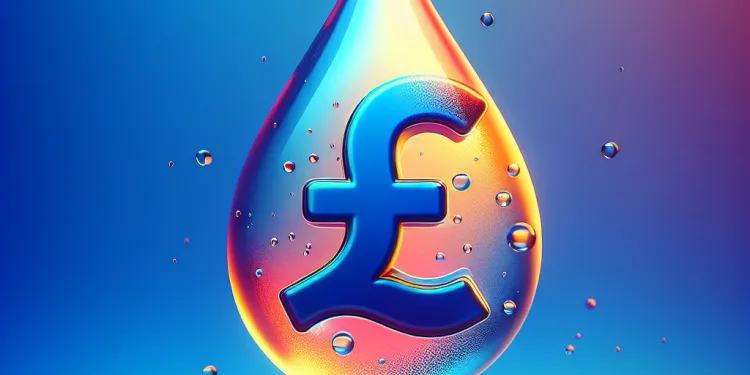
What is the first step to claim money back from my water company?
Relevance: 37%
The Role of Water Companies in Sewage Pollution
Introduction
Water companies in the UK are responsible for the management and treatment of wastewater, ensuring that sewage is properly processed and treated before it is released back into the environment. This process is crucial for maintaining public health and protecting natural ecosystems. However, sewage pollution remains a significant environmental concern, and the role of these companies is critical in addressing this issue effectively.Infrastructure Management
Water companies oversee a vast network of sewage systems, including pipelines, treatment plants, and discharge outlets. Maintaining and upgrading this infrastructure is vital to prevent leaks and overflows that can result in untreated sewage entering rivers, streams, and coastal waters. Investment in modern technologies and regular maintenance is essential for mitigating the risk of sewage pollution.Regulatory Compliance
Water companies must comply with regulations set by environmental agencies such as the Environment Agency in England and Natural Resources Wales. These regulations set limits on the levels of pollutants that can be discharged into water bodies. Compliance involves monitoring water quality, reporting performance, and adhering to licenses. Failing to comply can result in severe penalties and damage to a company’s reputation.Challenges Faced by Water Companies
One of the significant challenges is the capacity of sewage systems, which can be overwhelmed during heavy rainfall, leading to combined sewer overflows (CSOs) that release untreated sewage. Aging infrastructure and population growth put additional pressure on the system. Water companies must balance investing in infrastructure improvements with keeping bills affordable for customers.Innovations and Solutions
To tackle sewage pollution, water companies are deploying innovative solutions such as smart sensors for real-time monitoring, green infrastructure like wetlands for natural filtration, and public awareness campaigns to reduce improper disposal of fats, oils, and greases that cause blockages. Collaboration with local authorities and environmental groups also plays a critical role in developing effective response strategies.Conclusion
Water companies have a pivotal role in managing sewage pollution. By ensuring robust infrastructure, complying with regulations, addressing challenges, and implementing innovative solutions, they contribute to reducing the environmental impact of wastewater and safeguarding public health. Engaging with communities and stakeholders will further enhance efforts to improve water quality across the UK.The Role of Water Companies in Sewage Pollution
Introduction
In the UK, companies that provide water also manage dirty water, known as sewage. They make sure it is cleaned before it goes back into nature. This keeps us healthy and helps nature, too. But sewage pollution is a big problem. These companies play an important part in fixing it.Looking After Pipes and Plants
Water companies take care of many pipes and places that clean dirty water. They need to keep these in good shape to stop leaks. If pipes break, dirty water can get into our rivers and seas. Using new technology and fixing things on time helps stop this.Following Rules
Water companies must follow rules set by groups like the Environment Agency in England. These rules say how much pollution is allowed in water. Companies must check water quality, tell how they are doing, and stick to their licenses. Breaking rules can lead to big fines and a bad name.Problems Water Companies Face
Heavy rain can fill up sewage systems too much, causing spills of dirty water. Old pipes and more people needing water add extra strain. Water companies need to spend money to improve pipes but also make sure bills are fair for people.New Ideas and Solutions
To fight sewage pollution, water companies are trying new things like smart gadgets to watch systems, using nature to clean water, and teaching people not to block sinks with oils and fats. They also work with local groups to find better ways to handle sewage.Conclusion
Water companies are key in fixing sewage pollution. By keeping pipes in good shape, following rules, solving problems, and using new ideas, they help keep our environment clean and healthy. Working together with people in the community makes these efforts stronger. **Tools and Tips:** - Use simple pictures or diagrams to understand how water systems work. - Talk to someone about water pollution to learn more. - Remember to turn off taps and save water.Frequently Asked Questions
What is the role of water companies in managing sewage?
Water companies are responsible for collecting, treating, and properly disposing of sewage to prevent pollution and protect water quality.
How do water companies contribute to sewage pollution?
Sewage pollution can occur when water companies release untreated or partially treated sewage into water bodies, often due to infrastructure failures, capacity limitations, or during heavy rainfall to prevent overloading the system.
Why do sewage overflows happen?
Sewage overflows can happen when the sewer system is overwhelmed by heavy rain or blockages, causing untreated sewage to be discharged into rivers or coastal waters to prevent flooding homes and streets.
What steps are water companies taking to reduce sewage pollution?
Water companies are investing in infrastructure upgrades, improving treatment processes, and creating better monitoring systems to reduce the frequency and impact of sewage overflows.
What is a combined sewer overflow (CSO)?
A combined sewer overflow is a structure in the sewer system that releases excess wastewater, including sewage and stormwater, into water bodies during heavy rainfall to protect urban areas from flooding.
Are there regulations governing sewage discharges?
Yes, water companies are regulated by the Environment Agency in England and similar bodies in other UK regions, which set limits and conditions for sewage discharges to prevent pollution.
How can the public help reduce sewage pollution?
The public can reduce sewage pollution by avoiding flushing non-biodegradable items down the toilet, reducing water consumption, and supporting green infrastructure like rain gardens.
What are the environmental impacts of sewage pollution?
Sewage pollution can harm aquatic ecosystems, reduce water quality, and pose health risks to humans and wildlife by introducing pathogens and nutrients that lead to algal blooms.
How do water companies monitor sewage pollution?
Water companies use sensors, samples, and data analysis to monitor sewage systems and water quality, helping them respond quickly to pollution incidents.
What are the penalties for water companies that pollute?
Water companies can face significant fines and regulatory actions if they fail to comply with environmental regulations and permits related to sewage discharges.
How does climate change affect sewage pollution?
Climate change can increase the frequency and intensity of rainfall, leading to more sewer overflows and strain on wastewater infrastructure, thus exacerbating sewage pollution problems.
What technologies are being used to improve sewage treatment?
Water companies are using advanced filtration, biological treatment processes, and real-time monitoring technology to enhance sewage treatment and reduce pollutants.
What is the role of government in addressing sewage pollution?
The government sets environmental standards, enforces regulations, and provides oversight of water companies to ensure they manage sewage pollution effectively and protect public health.
How are investment priorities set for water infrastructure projects?
Investment priorities are generally set based on regulatory requirements, environmental impact assessments, risk analyses, and public input, aiming to address the most critical issues first.
Can water companies be held legally accountable for sewage pollution?
Yes, water companies can be prosecuted for breaches of environmental laws, and they may be liable for damages if their actions lead to pollution or harm to ecosystems or communities.
What Do Water Companies Do With Sewage?
Water companies help clean dirty water. They take away waste water from homes and buildings. Then, they clean it to make it safe for the environment.
Tools that can help:
- Simple pictures showing how water is cleaned.
- Videos that explain what water companies do.
Water companies take care of dirty water. They clean it and get rid of it the right way. This stops water from getting dirty and keeps it safe.
How do water companies cause sewage pollution?
Water companies clean our water. Sometimes, they let dirty water (sewage) go into rivers and seas. This can happen when it rains a lot, or if their machines break. This makes the water dirty.
It's like spilling your drink by accident. The water companies are trying to clean it up, but sometimes they spill a bit too.
If you want to know more, you can ask a teacher or use a computer to search for help. There are also videos and pictures online that explain this in a simple way.
Sewage pollution happens when dirty water from toilets and drains gets into rivers or the sea. This can happen when water companies have problems, like broken pipes or too much rain. When there's too much water, they sometimes release the dirty water so the system doesn’t break.
Why does too much sewage spill out?
Sewage overflows can happen when there is too much rain or a blockage. This means sewage, which is dirty water and waste, can spill into rivers or the sea if the sewer system can't handle it. This stops homes and streets from flooding.
How are water companies stopping dirty water pollution?
Water companies are making plans to stop dirty water from going into rivers and seas. Here’s how they do it:
1. **New Pipes:** They are putting in new pipes to carry the dirty water.
2. **Fixing Leaks:** They are fixing pipes that leak, so dirty water doesn’t spill out.
3. **Cleaning Plants:** They are building special places called treatment plants. These clean the dirty water before it goes back to rivers and seas.
4. **Checking Work:** They have people checking the pipes and cleaning plants to make sure everything is working well.
If you want to learn more, you can:
- **Ask Questions:** Talk to someone who works for a water company.
- **Use Easy Tools:** Find simple videos online that show how water is cleaned.
Water companies are working to make things better. They are fixing and upgrading their systems to make them stronger. They are cleaning water better, and checking their work more often. This helps to stop too much dirty water from overflowing.
What is a combined sewer overflow (CSO)?
A combined sewer overflow, or CSO, is when too much rain makes the sewer system too full. This can cause dirty water to spill into rivers or seas.
Here are some ways to help you understand:
- Picture It: Think of a bathtub too full with water spilling over the sides.
- Break it Down: "Combined sewer" means a pipe carrying both rain and toilet water. "Overflow" means the extra water that spills out.
If you find this hard to read, try:
- Reading with someone else.
- Using a computer to read the text out loud for you.
A combined sewer overflow is a part of the sewer system. It lets extra water go into rivers or lakes when it rains a lot. This stops flooding in cities.
Are there rules for sewage water?
Yes, water companies are watched over by a group called the Environment Agency in England. Other parts of the UK have similar groups. They set rules to stop too much sewage from going into rivers and make sure the water stays clean.
How can people help stop dirty water pollution?
Sewage is dirty water and waste. It can make rivers and seas dirty and hurt fish and plants.
Here are some ways to help stop sewage pollution:
- Use less water: Turn off the tap when you brush your teeth. Take short showers.
- Do not flush trash: Only flush toilet paper. Do not flush wipes, cotton buds, or other trash.
- Pick up pet poo: Always clean up after your pet and put it in the bin.
- Use a bin, not the sink: Pour grease and leftover food into a bin, not down the sink.
Here are some tools that can help:
- Use reminders: Put reminders near your sink and toilet to remember what not to flush or pour.
- Share what you learn: Tell friends and family how they can help too.
Every small action helps keep water clean!
You can help keep water clean. Don't flush things that won't break down, like baby wipes or plastic, down the toilet. Use less water when you can. Also, support things like rain gardens—they help soak up rainwater so it doesn't cause problems.
How does sewage pollution harm the environment?
Sewage pollution is when dirty water from homes and factories gets into rivers, lakes, or the sea. This can hurt the environment in different ways.
Here are some ways it can cause harm:
- Fish and animals can get sick or die if they live in dirty water.
- Plants may not grow well because they need clean water.
- The water might smell bad and be unpleasant to be near.
- People who drink or swim in the dirty water might also get sick.
To help you learn more about this, you can ask a teacher or look for easy-to-read books and websites. Using pictures or videos can also make it easier to understand.
Sewage pollution is bad for water and animals living in it. It makes the water dirty and can make people and animals sick. It has germs and other stuff that can make too much algae grow, which is not good.
How do water companies check for dirty water?
Water companies watch the water to keep it clean. They do this by:
- Testing: They take water samples to see if it's dirty.
- Sensors: They use machines to find problems in the water.
- Inspecting plants: They check places where water is cleaned.
If you want more help, you can use pictures or videos to understand better.
Water companies use special tools to keep an eye on sewage and water. These tools help find problems fast so they can fix them quickly. They use:
- Sensors - These are like electronic noses. They sniff around to check for bad things in the water.
- Samples - Workers collect bits of water to test and make sure it is clean.
- Data Analysis - Computers look at all the information from sensors and samples to find any problems.
If you find this tricky, there are tools to help you read better:
- Text-to-speech - This tool reads the words out loud for you.
- Highlighting - Use a highlighter to mark important words to remember them better.
- Mind maps - Draw a simple picture with words to show how everything is connected.
What happens if water companies make water dirty?
If a water company makes the water dirty, they can get in trouble.
The company might have to pay money as a punishment.
Sometimes, people check to make sure companies are not making water dirty.
If you want to learn more, you can use books or the internet.
Water companies must follow rules about sewage discharges. If they don't, they can get big fines. They might also get in trouble with the people who make the rules.
How does climate change change how dirty water affects us?
Climate change makes the Earth warmer. This can cause more rain or storms. When it rains a lot, sewers can overflow. This means dirty water can spill into rivers and oceans.
Dirty water can make us sick. It can hurt fish, animals, and plants that live in the water.
To help understand this, you can:
- Look at pictures or videos about water and weather.
- Use simple words to talk about how we can keep water clean.
- Ask someone to explain if you don't understand.
When our climate changes, it can rain more often and much harder. This extra rain can make sewers overflow. This puts a lot of pressure on pipes and drains and can make the problem of dirty water worse.
What new things help clean dirty water?
Water companies clean dirty water in smart ways. They use special filters, tiny organisms, and tools that check the water all the time. This helps make the water cleaner and remove bad stuff.
What does the government do to stop dirty water problems?
The government makes rules about the environment. They watch over water companies to make sure they handle waste and sewage properly. This helps keep people healthy and safe.
Useful tools or tips: - Use apps that read text out loud. - Break big tasks into small steps. - Ask someone to explain things you don’t understand.
How do we decide which water projects are most important?
When we decide where to put money first, we often look at rules we have to follow, how it affects nature, what the risks are, and what people think. We try to fix the biggest problems first.
Can water companies get in trouble for dirty water?
Yes, water companies can get into trouble if they break the rules that protect nature. They might have to pay money if they cause pollution or hurt animals, plants, or people.
Useful Links
Have you found an error, or do you have a link or some information you would like to share? Please let us know using the form below.
-->
This website offers general information and is not a substitute for professional advice.
Always seek guidance from qualified professionals.
If you have any medical concerns or need urgent help, contact a healthcare professional or emergency services immediately.
Some of this content was generated with AI assistance. We’ve done our best to keep it accurate, helpful, and human-friendly.
- Ergsy carfully checks the information in the videos we provide here.
- Videos shown by Youtube after a video has completed, have NOT been reviewed by ERGSY.
- To view, click the arrow in centre of video.
- Most of the videos you find here will have subtitles and/or closed captions available.
- You may need to turn these on, and choose your preferred language.
- Go to the video you'd like to watch.
- If closed captions (CC) are available, settings will be visible on the bottom right of the video player.
- To turn on Captions, click settings .
- To turn off Captions, click settings again.
More Items From Ergsy search
-

What role do water companies play in sewage pollution?
Relevance: 100%
-

What agencies monitor and regulate sewage pollution in the UK?
Relevance: 80%
-

What is being done to address sewage pollution on UK beaches?
Relevance: 79%
-

Which UK areas are most affected by sewage pollution?
Relevance: 77%
-

Has sewage pollution in the UK improved over recent years?
Relevance: 77%
-

What causes sewage pollution on UK beaches?
Relevance: 76%
-

Is climate change affecting sewage pollution levels?
Relevance: 74%
-

How does sewage pollution affect public health?
Relevance: 70%
-

Can sewage pollution impact marine wildlife?
Relevance: 70%
-

Are there legal guidelines for sewage discharge into UK waters?
Relevance: 69%
-

How can individuals help reduce sewage pollution?
Relevance: 69%
-

Is sewage a problem on UK beaches?
Relevance: 66%
-

How can the public find out if a beach has sewage pollution?
Relevance: 66%
-

Are water companies responsible for maintaining water infrastructure in the UK?
Relevance: 56%
-

Which UK water companies are going to refund their customers?
Relevance: 51%
-

How many UK water companies are involved in the refund process?
Relevance: 48%
-

Are there penalties for water companies besides issuing refunds?
Relevance: 47%
-

When will the refunds be issued by the UK water companies?
Relevance: 46%
-

How do water companies fund infrastructure updates?
Relevance: 45%
-

Who regulates water companies in the UK?
Relevance: 43%
-

What criteria were used to determine the refunds for UK water companies?
Relevance: 43%
-

Do water companies have long-term infrastructure plans?
Relevance: 42%
-

Do water companies have to update the infrastructure?
Relevance: 42%
-

Which UK water companies are going to refund their customers for poor performance?
Relevance: 41%
-

How do water companies detect leaks?
Relevance: 41%
-

Who regulates the performance and compliance of UK water companies?
Relevance: 41%
-

Are water companies responsible to maintain and update infrastructure in the UK?
Relevance: 41%
-

How much is being refunded in total by the UK water companies?
Relevance: 41%
-

How are infrastructure priorities determined by water companies?
Relevance: 39%
-

Will all customers of these UK water companies receive refunds?
Relevance: 39%
-

Which body is responsible for enforcing refunds by UK water companies?
Relevance: 39%
-

How transparent are water companies regarding infrastructure improvements?
Relevance: 39%
-

What can I do if the water company doesn’t respond to my claim?
Relevance: 39%
-

Can water companies enter my property to enforce a hosepipe ban?
Relevance: 38%
-

Can customers appeal or discuss the refund amount with their water company?
Relevance: 38%
-

What challenges do water companies face in maintaining infrastructure?
Relevance: 38%
-

Do these refunds mean water companies have increased their rates fraudulently?
Relevance: 37%
-

Where can customers find updates on their water company's performance standards?
Relevance: 37%
-

How can I claim money back from my water company?
Relevance: 37%
-

What is the first step to claim money back from my water company?
Relevance: 37%


